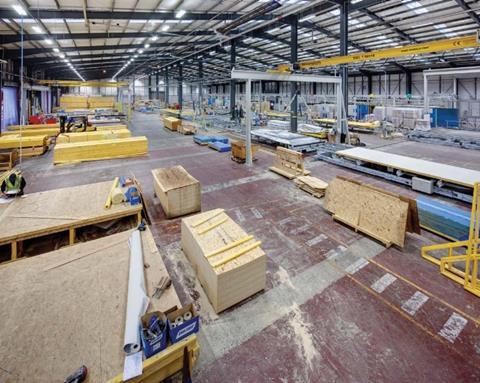Plan has been endorsed by government MMC champion Mark Farmer
The RIBA has published a guide for practices designing projects to be built offsite.
The Design for Manufacture and Assembly (DfMA) overlay to the RIBA Plan of Work has been published alongside an accompanying guide.

It aligns with the 2020 Plan of Work and details the relevant tasks that must be actioned at each project stage to successfully deploy the DfMA approach.
The overlay was produced by a group of industry experts led by Nigel Ostime, partner at Hawkins\Brown, and Ian Heptonstall, director of the Supply Chain Sustainability School.
Simon Allford, RIBA president, said: “By embedding this delivery mechanism within the RIBA Plan of Work, we are acknowledging the proven potential of DfMA solutions to produce not only good outcomes, but great architecture, as the case studies show.
“I firmly believe the built environment must explore this territory to meet the challenges ahead and – as custodians of good design – architects have the potential to lead its adoption.”
The guide has also been supported by Akerlof, Buildoffsite, Kier, Supply Chain Sustainability School and UK Research and Innovation, and endorsed by Mark Farmer, the UK government MMC champion for homebuilding.
Farmer said: “At a time when the construction industry’s inherent fragility is being exposed more than ever, there is even more focus on changing the traditionally accepted methods of doing things which are no longer fit for purpose.
“This overlay therefore comes at a crucial time and if we are to fully enable adoption of technology and modern methods of construction and the better outcomes we strive for, then the overarching principles of how we initiate projects and organise the design and production process needs to be reformed and this overlay provides a blueprint for that.”
He added that the high profile of the RIBA’s Plan of Work as a project management and control tool made the RIBA’s guidance a practical and powerful addition to the tools necessary to modernise the industry.
















No comments yet